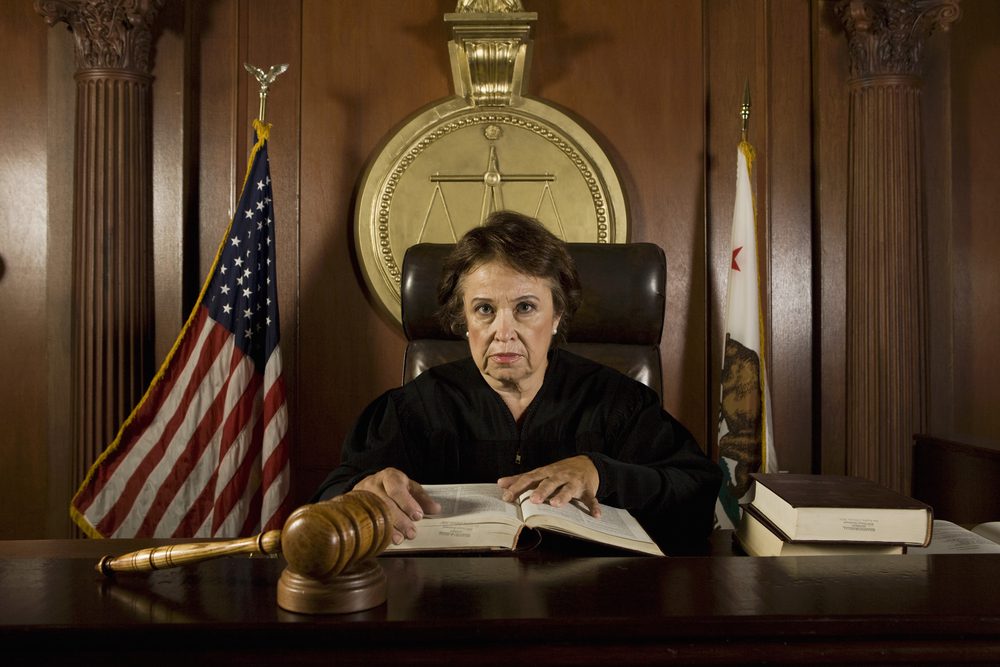Criminal charges can stress out anyone regardless of age. Whether your teen is caught joyriding during the school day and charged with a juvenile crime or a family member’s mistake lands them in legal trouble, trekking through either justice system is overwhelming. Don’t navigate these situations with uncertainty. Use this guide to understand key differences between juvenile and adult criminal defense systems before taking swift action.
Jumping Into the Juvenile Justice System
US states specify how they handle minor offenders, typically under the age of 16. Rather than going through regular court, juvenile criminal proceedings take place in family court or juvenile-specific systems.
Common Juvenile Charges
Children and teens act impulsively due to underdeveloped brains and inexperience in decision-making processes. Peer pressure, societal expectations, and emotional distress can all accumulate, leading many to commit common juvenile crimes, including:
- Vandalism
- Shoplifting or theft
- Underage drinking and drug possession
- Bullying or harassment (in-person or online)
- Simple assault
- Domestic violence, sexual assault, stalking, etc.
- Status offenses (curfew violations, truancy, runaways, etc.)
A Bit About Adult Criminal Defense
The adult justice system operates precisely how you’d expect. Courts uphold local and federal laws, considering anyone over seventeen an adult. Minors tried in adult courts typically receive much harsher consequences
Common Criminal Charges for Adults
Adult charges can range from serious violent crimes or white-collar offenses down to simple misdemeanors. Examples of common adult crimes include:
- Assault and battery
- Grand theft
- Domestic violence
- White-collar crimes (laundering, fraud, embezzlement, etc.)
- Drugs, distribution, and trafficking
- Prostitution, solicitation, and sex crimes (involving adults or children)
- Weapons charges
- Permit violations
- Internet crimes
- DWI
Juvenile vs. Adult Criminal Defense: A Comparison
Although adults and minors may commit similar crimes, America’s legal systems handle these scenarios differently. Below is a brief overview of how each system stacks up.
Primary Similarities
Adults and minors charged with crimes receive the same inalienable rights, including the following:
- An attorney
- Knowing the charges against you
- Identifying your accuser(s)
- Avoiding incriminating yourself
- Cross-examining all witnesses
- Proving guilt beyond a reasonable doubt
Key Differences
The main differences between adult and juvenile criminal defense systems include:
- Where proceedings are held
- Terminology defining charges, punishments, convictions, etc.
- Criminal trial, appeals, and expungement processes
- Options for legal representation
- Who is authorized to consult with the criminal defense attorney
- Kinds of punishment
Breaking Down 9 Differences in Juvenile and Adult Court Systems
Breaking down critical differences is simple, with a better idea of how adult and juvenile court systems compare. Explore these contrasting systems more extensively below:
1. Terminology
The terminology used within each system differs. Adult defendants are charged with complaints and convicted, while juveniles are petitioned and considered adjudicated delinquents when punished. Sentencing applies to adults while minors receive a disposition to determine consequences.
2. Representation
With so much variation in crimes that adults commit, finding an attorney experienced in one specific practice area is a significant asset in adult court. Legal representation options for minors are more limited, so look for a lawyer who understands family court and juvenile justice systems.
3. Trial and Hearing Locations
Adults are tried in criminal court based on where offenses occur. Legal proceedings take place in city, county, state, or federal courts. In contrast, juvenile cases stay within a state’s family court system unless offenders are found responsible enough to be tried as an adult.
4. Jury Presence
The US Constitution’s Sixth Amendment ensures a fair jury trial for adults unless a settlement or plea agreement is met before proceedings commence. Adult criminal trials are reviewed by a jury of peers, meaning it’s made up of impartial, everyday American citizens. Juvenile crimes preside in family court under one judge, not involving a jury.
5. Open vs. Closed Proceedings
Another Sixth Amendment stipulation is the right to public proceedings. This privilege does not cover crimes involving minors and only applies in the adult criminal system.
6. Consequences
Consequences rendered in each case also starkly contrast. As mentioned earlier, adult punishment is called sentencing, while minors go through a disposition to determine the outcome.
The juvenile justice system focuses on rehabilitative tactics, such as court-mandated therapy, drug or alcohol counseling, and in-patient mental health treatments instead of harsh punishment. Adult sentences are more severe, ranging from financial restitution to long-term incarceration. Check out examples of expected consequences for adult and minor crimes below.

Adult Sentencing
After adult convictions, sentencing can include:
- Fines
- Community service
- Restitution
- Probation
- Suspended sentences
- Drug and alcohol rehabilitation
- Mental healthcare facilities
- Short-term incarceration
- Long-term or life sentences
- Capital punishment (in some states)
Typical Juvenile Punishments
Juvenile crimes are primarily dealt with through rehabilitation instead of intense criminal punishment. Common consequences are:
- Community service
- Fines or restitution
- Home confinement
- Diversion programs
- Juvenile detention facilities
- Foster care or group homes
- Adult prison
Although juvenile justice systems are typically less strict, there are still several life-long impacts of childhood criminal charges. Seeking reliable legal counsel from an experienced family attorney can help avoid any irreversible adverse socioeconomic effects on a child’s life.
7. Overturning Court Rulings
All criminal appeals must go through the appellate court for review by a panel of three qualified judges. Adults can appeal criminal convictions within sixty days of sentencing due to ineffective legal counsel, juror misconduct, evidentiary issues, Constitutional violations, or other significant legal errors.
The Court of Appeals reviews juvenile cases for similar reasons within the same timeframe. Family attorneys can also file a writ for juveniles charged as adults or attempt to obtain a new judge if initial decisions go against defendants during the detention phase. Writs in juvenile courts are essentially documents asking for the minor to be released from custody or illegal holding.
8. Expunging Records
Record expungement also differs in each system. Depending on the crime’s severity, adults can request expungement of federal convictions after five years and three for misdemeanors, according to Minnesota State Statute Chapter 609A.
Juvenile offenses are often eligible for expungement after only one year or remain sealed entirely into the offender’s adulthood. The ultimate decision is made during final dispositions. Don’t forget that convictions stay on record forever regardless of your age unless the proper requests are made.
9. Who to Contact
Navigating adult or juvenile courts can be downright challenging for someone without experience in their complexities. Whether you’re an adult going through this process alone or your child is charged with a crime, consulting an attorney will be crucial. Look for lawyers with a deep understanding of your circumstances. Common legal practice areas include:
- Family law
- Juvenile crimes
- Criminal law and appeals
- Federal criminal defense
- Pre-charge representation
- Criminal and civil litigation
- Dispute resolution or mediation
Your situation’s specifics will determine who is best qualified to beat your case. Family lawyers and those with experience in juvenile crimes will know how to work with both children and their families during this difficult time. Do thorough background research before reaching out to the best lawyers in your area.
Get the Help You Need to Deal With Each Criminal Defense System
Going through legal proceedings and receiving punishment for a crime can overwhelm any adult and especially children. Fortunately, you don’t have to try to figure it out alone. Complete in-depth research and select an attorney with experience in a practice area encompassing your situation. Consult with the team at CJB Law today to learn more about your options in either the adult or juvenile criminal defense systems and achieve a successful outcome in your case.

